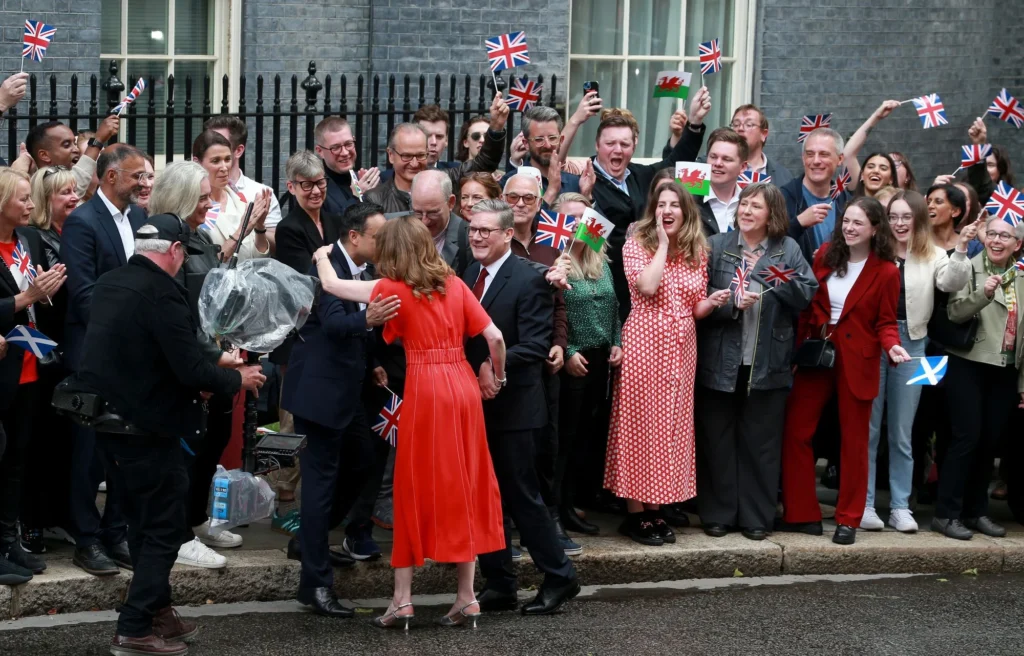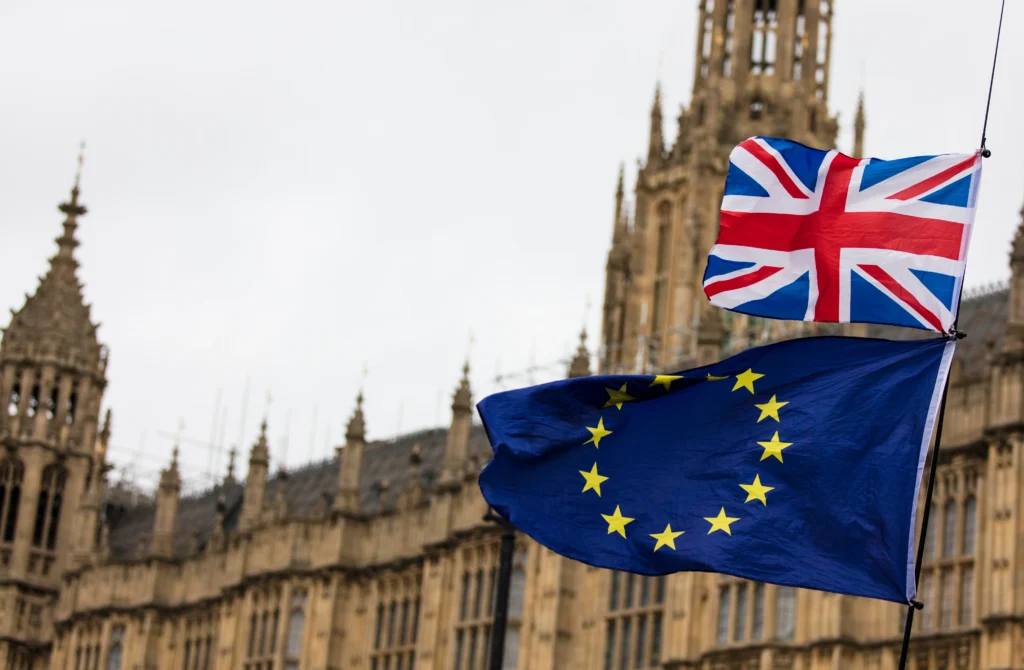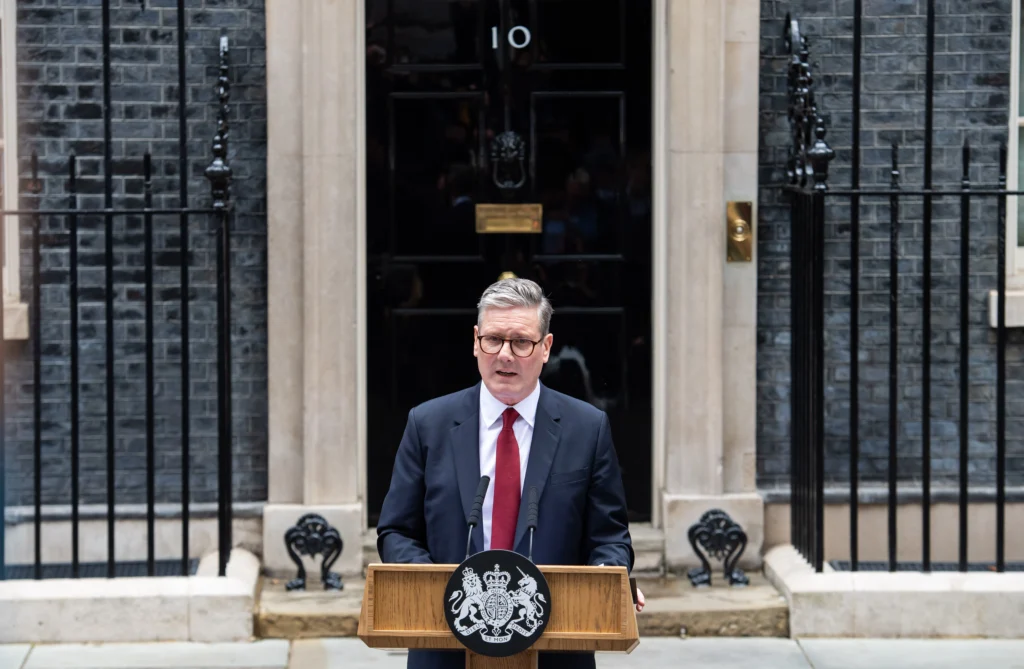The first year of Keir Starmer’s Labour government has been a year of ambitious reform, economic restructuring, and political turbulence. Promising a “decade of national renewal,” the Labour government has introduced sweeping fiscal changes, prioritised infrastructure and climate policies, and sought to restore public trust in governance. Yet the path has not been smooth and there have often been communication challenges and policy decisions that have proven to be extremely unpopular. Let’s explore the key successes and failures that have defined Labour’s first 12 months in power.
1. Labour’s economic strategy has been arguably the most defining element of its first year.
Chancellor Rachel Reeves launched a £113 billion capital investment programme focused on growth through infrastructure, clean energy, and AI technology. This marked a strategic departure from austerity economics, dubbed “securonomics.” At the same time, Reeves implemented the largest tax increase since 1993, raising £40 billion to fund these investments. Critics, including business leaders like James Dyson, have warned that the high-tax climate could stifle innovation and foreign investment. However, markets have remained calm, signalling confidence in the government’s financial stewardship.
2. Public services have seen renewed attention, with significant funding increases across the NHS, housing, and education.
The NHS has seen operational funding boosts and a commitment to expand procedures by 40,000 per week. Nonetheless, performance metrics such as 18-week waiting time targets remain well below pre-pandemic levels but waiting times do continue to fall. Meanwhile, Labour resolved several strikes, including junior doctors and rail workers, which has helped restore a degree of public confidence. Given that Health Unions are possibly going to strike again later in the year, whether this period of stability can be maintained remains to be seen. Labour is still the most trusted party on the NHS and in the Spending Review it was a significant winner.
3. Climate and energy transformation has also been a signature achievement.
The government recommitted to decarbonising the electricity grid by 2030 and halted new North Sea oil and gas licences. Labour hosted COP29 with renewed international credibility, and set higher energy-efficiency standards for homes and businesses. However, progress in decarbonising sectors like transport and manufacturing remains limited, raising concerns about the feasibility of broader climate goals. However, the rise of Reform UK and their populist claims against net-zero and the impact climate policy is having on energy costs could influence government. The war in the middle east could have a significant impact on energy prices and so the speed at which the UK moves to net-zero may slown down.
4. On defence, Labour launched its first Strategic Defence Review since 2003, outlining investments in ammunition, nuclear deterrence, and digital defence infrastructure.
A commitment was made to raise defence spending to 2.5% of GDP by 2027—funded in part by cutting the UK’s foreign aid budget from 0.5% to 0.3% to meet the NATO commitment. While applauded by hawks, this move drew criticism from humanitarian organisations. Keir Starmer has been applauded for his handling of the Ukraine War and his commitment to ensuring the UK’s defences. Labour must ensure that this new money enhances the UKs military capacity in a dangerous world.
5. Immigration policy has also seen a hardening stance.
Deportations—both enforced and voluntary—reached a five-year high. Labour has also proposed reforms to the European Convention on Human Rights (ECHR) to enable faster deportations. Despite these efforts, small boat crossings in the English Channel rose by nearly 45%, undermining the government’s credibility on border control. Reform UK are capitalising on the genuine public anger over the small-boats and unless this issue is resolved it will undermine Labours efforts to reduce immigration. The government have announced the end of asylum hotels by the end of the Parliament which is a welcomed move.
6. Labour’s handling of political optics has been more mixed.
Communication has not been a strong point. A controversial decision to eliminate winter fuel payments for higher earners sparked public backlash and was ranked among voters’ top complaints. Further controversy erupted over a “freebie” scandal involving ministers receiving gifts, undermining Labour’s promise of ethical leadership. Internally, the transition of Sue Gray from civil servant to chief of staff raised eyebrows and exposed tension within the machinery of government. The government has yet to demonstrate that it can perform better than the populist Reform on social media.
7. Social unrest also marked Labour’s first year.
Riots in Southport prompted a national response, including increased policing and a new inquiry into urban violence. Separately, Labour launched a long-awaited national inquiry into grooming gangs, following criticism of years of institutional inaction. While this decision was welcomed the government has been heavily criticised for not ordering an inquiry earlier. The grooming gang’s inquiry was an example of where labour did not manage to read the public mood. Labour figures aligned the desire for an inquiry with supporting the far right, but the public wanted root and branch reform into this scandal which it regarded as an evil in our society. This is where Labour needs to better grasp the public mood.
In terms of public opinion, the early honeymoon period faded quickly. While Keir Starmer maintains a narrow lead over the Conservative opposition leader in terms of personal approval ratings, overall satisfaction with the Labour government has declined. Notably, younger voters—once a stronghold for Labour—appear disillusioned, with support among under-25s flatlining. Several polls show that Labour’s national approval has dipped steadily since the autumn. Labour is losing votes to the Greens, Liberals and Reform. The local elections in May of this year were a disaster for the Labour Party, and while recently Labour has crept up in the polls, forecasts for next year’s Welsh, Scottish and local elections are bleak.
Labour’s first year in government has been bold and eventful. On the one hand, the government has made meaningful investments in climate, infrastructure, and public services. It has taken a more serious stance on defence and attempted to reset UK leadership on the global stage. On the other hand, economic trade-offs, internal political controversies, and rising immigration figures have revealed underlying challenges. Delivering on economic growth must be the primary focus of the government over the next year.
Whether Labour can convert its long-term vision into lasting change remains to be seen. The public wants to see results. While they appear cautiously optimistic, they are becoming increasingly impatient. The success of the Starmer administration may depend less on ambition and more on its ability to deliver tangible improvements in people’s everyday lives and quickly. That will be the test for the next twelve months.




